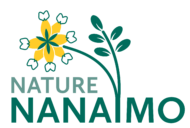Climate change is the greatest threat to wild Pacific salmon in our fresh water and marine ecosystems. Rivers and streams throughout B.C. are warming and flow patterns are changing. Warming temperatures change rainfall and snowmelt patterns often causing impassable waters for salmon. The warming waters of the Salish Sea affect the entire food web resulting in less food for salmon, increased disease and stress, and impacts to nearshore habitats. The Pacific Salmon Foundation (PSF) works with experts across British Columbia to uncover and deploy action-based solutions to help wild Pacific salmon to adapt and survive.
Isobel will speak to impacts of climate change on Coho and Chinook in the Salish Sea, and some of the actions that are being taken to increase survival and resilience of these iconic species.
Biography:
Dr. Isobel Pearsall is the Director of PSF’s Marine Science Program. She co-ordinated the Pacific Salmon Foundation’s Salish Sea Marine Survival Project, and is the Manager of the PSF/UBC Strait of Georgia Data Centre. She holds a first class degree in pure and applied biology from Oxford University, a M.Sc. in ecology from the Department of Biology at Dalhousie University, and a PhD. in ecology from the Department of Plant Science, UBC. After her PhD studies, she taught at San Diego State University, and was then a post-doctoral fellow in ecosystem management at the Pacific Biological Station, Department of Fisheries and Oceans, Nanaimo. Since 1995, she has worked as a scientist on numerous programs for government, non-profit organizations, and private industry. She is an adjunct professor at UBC.
